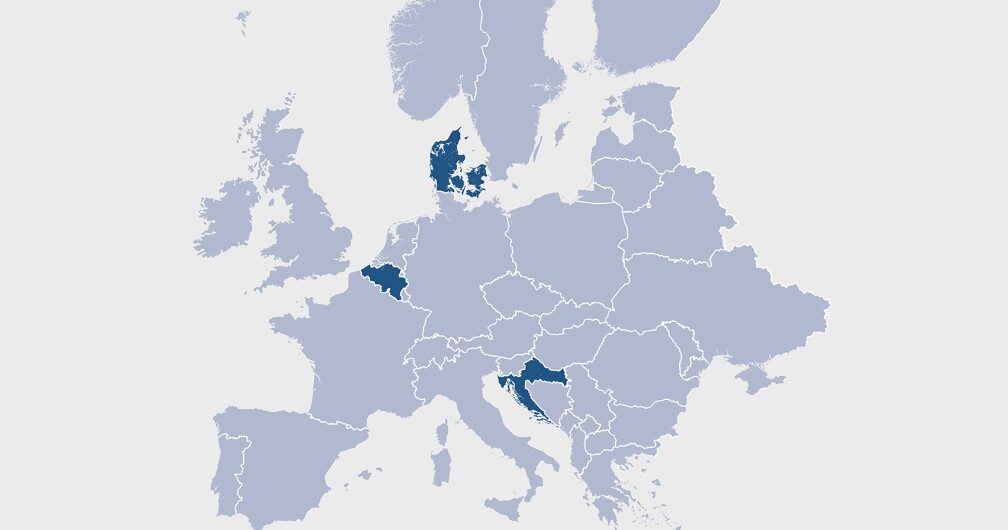Energy accounts for more than 75 percent of the total greenhouse gas emissions in the EU. The European Green Deal aims to secure 40 percent renewable energy by 2030. Does the current energy crisis affect the green transition in the energy sector? Join this online debate with Julie Bangsgaard Abrahams (Denmark), Goran Čačić (Croatia) and Mathieu Blondeel (Belgium).
Date: Thursday, November 24, 2022 Time: 1:00-2:00 pm
Venue: Online (Zoom)
The European Green Deal aims to make Europe climate neutral by 2050. Within this frame the climate package ‘Fit For 55’ puts an additional objective to reduce greenhouse gas emissions by at least 55% by 2030, compared to 1990 levels which all member states have pledged to comply to.
Energy production and use account for more than 75 percent of the total greenhouse emissions in the EU. Therefore, the transition to sustainable energy is to play a central role in the EU’s effort to fulfill the Paris Agreement. Fit for 55 aims at securing 40 percent renewable energy in the mix by 2030, as well as accelerating energy efficiency in buildings, industries and the transport sector from 32 to 39 percent in 2030.
Many member states were on the right track in relation to secure more renewable energy, but due to the uncertain geopolitical situation following Russia’s invasion of Ukraine, which caused energy prices to rise and supplies to become uncertain, some will need to re-think their energy supplies. Countries that were highly dependent on Russian gas will have to find alternative energy supplies and might end up using more fossil energy in lack of better and greener alternatives.
How can the EU reach its climate goals in terms of energy? How are Denmark, Belgium and Croatia reaching the climate goals set by the EU? How does the war in Ukraine and the current energy crisis affect green transition in the energy sector in the EU and specifically in Denmark, Beligum and Croatia? Do the countries experience specific challenges in order to reach the climate goals? Should the countries’ governments do more in order to secure more renewable energy?
Join the online debate with experts from Denmark, Belgium, and Croatia, who will give us an idea of how the countries are trying to reach the climate goals according to energy and how the energy crisis affects the green transition in the energy sector in the countries.
Experts:
Julie Bangsgaard Abrahams is advisor on energy and buildings in the Danish NGO Green Transition Denmark, where she focuses on energy efficiency and the out-phasing of fossil energy.
Mathieu Blondeel is Research Fellow at University of Warwick where he is a specialist in geopolitics of energy.
Goran Čačić is a civil society expert from Croatia with a strong background in energy conservation, energy management, efficiency and renewable energy. He is actively involved with the Green Energy Cooperative (ZEZ) and Terra Hub Croatia.
How to attend:
The event is free, but registration is required.
Sign up here
The link will take you to the homepage of Democracy in Europe Organisation who is handling the practical registration.
You will receive a link the same day as the online meeting. You will need the link to log in to the meeting from your computer.
The event is held with financial support from Erasmus+.
